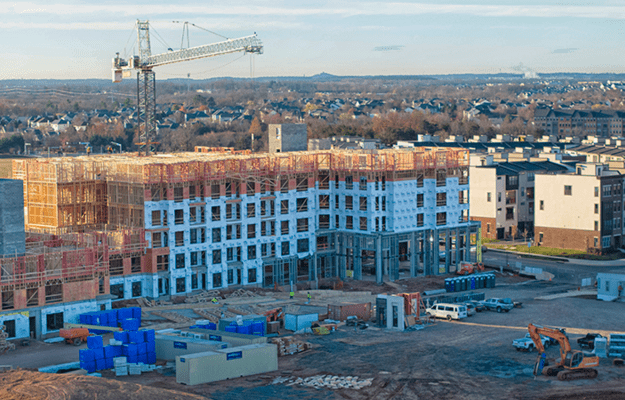
(MDay Photography/Shutterstock)
Color-Blind Climate Policies Reinforce Racial Inequities
- Title:
-
Unequal Retreats: How Racial Segregation Shapes Climate Adaptation
- Author:
-
Kevin Loughran and James R. Elliott
- Source:
- Publication Date:
-
2021
As climate change brings more frequent and dangerous floods, addressing sea-level rise and urban flooding is now a main tenet of urban adaptation planning. The Hazard Mitigation Grant Program executes one of the federally approved methods of addressing flooding risk: buyout, demolition, and relocation. These steps are also known as managed retreat.
However, in racially segregated cities that intentionally prevent people of color from accessing homeownership, building wealth, and accruing resources, managed retreat could reinforce inequities by neglecting race in program design. To investigate the relationship between racial segregation and climate adaptation, the authors of this study ask: How do racialized geographies manifest in the implementation of managed retreat policy?
The authors first used Federal Emergency Management Agency (FEMA) grant data to examine the quantity of buyouts by region type and race from 1989 to 2017. The authors narrowed in on areas that were both highly segregated and flood prone. They focused on Houston, Texas, which includes Harris County, which has four to five flood days per year on average, increasing annually. Drawing from the Harris County Flood Control District database that includes 3,076 federally funded buyouts from 1970 to 2014, the authors analyzed the average price paid for a buyout property and the proportion of white residents by tract. In addition, the authors searched for destination address within the Harris County Appraisal District online database, FastPeopleSearch.com, and Anywho.com, finding 75 percent of Harris County households that accepted a buyout before August 2017. Using these addresses, the authors determined the spatial distance of relocated households from the prior residences, as well as the demographic makeup of their resettled neighbors. The study found climate policy has a profound impact on housing.
Key findings
- Color-blind climate policies that direct assistance to homeowners can reinforce disproportionate white economic power. They leave Black and Latinx households most susceptible to rising flood risk without as many resources to adapt.
- More than three-quarters of federally funded home buyouts occur in US metropolitan centers, rather than rural areas.
- Urban centers and neighborhoods with predominantly white residents are more likely to gain access to the FEMA buyout program. Coupled with higher social and economic capital to combat relocation attempts, this may explain why predominantly Black and Latinx neighborhoods have the most demolitions.
- In Houston, the average buyout price doesn’t have a significant effect on the number of buyouts in a census tract. There also wasn’t a significant relationship between a tract’s proportion of white residents in 2000 and the number of buyouts in the tract.
- As the white population within a tract declined from 1970 to 2000, the frequency of buyouts in that tract increased. This implies that white flight strongly correlates with buyouts, leaving the racially underprivileged areas more susceptible to demolition.
- The average distance from a vacated home to the relocation address was 11.4 miles. The average distance from the relocation address to those of neighbors was 14.2 miles. Relocators from areas with more white residents were able to stay relatively geographically close to one another and maintain ties.
- Residents who participated in buyouts from areas with more white residents were more likely to relocate within their flood-prone tract and relocate to other flood-prone tracts that were predominantly white. This indicates that racial composition was a strong factor in relocation. Program participants in general moved to areas with greater shares of white residents, regardless of whether it was flood prone.
Policy implications
- To slow climate change and address racial inequities, policymakers can treat climate policy as housing policy. Hazard mitigation practices targeted to under resourced residents can provide a better approach to these issues.
- Managed retreat as currently implemented disproportionately favors white communities, and even allows residents to perpetuate segregation within flood-prone areas. Evaluating and adapting federal policy with historical context could help address relocation inequities.
- Cost-benefit approaches within top-down urban renewal effort can create distrust and be ineffective for socially and environmentally vulnerable neighborhoods.


